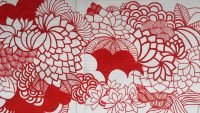Musician Yoko Sen Reimagines the Sounds of the End
What would you like to hear in your last moments? Maybe the ocean pounding the surf, the breeze rustling the leaves of a nearby tree or perhaps the voice of someone you love. These “last sounds” inspire the work of Yoko Sen.
Born and raised in Japan and trained as a pianist from the age of three, the ambient electronic musician has composed, produced and engineered soothing music for art galleries, airlines and museums.
But her own stay in a hospital in 2012 inspired her to embark on a new mission. As she explained during an EndWell talk, while she was sick, she spent hours and hours in hospitals.
She told Solace, “As a person who does sound and music, I’m very sensitive to sound. All the noise in the hospital was very disturbing to me. After that experience, I became very curious about why things have to sound the way they are.”
Sen used as an example how a cardiac monitor plays a “C” note and a bed alarm an “F” sharp. In music theory, the two make a chord called a tritone, and in Medieval times was called “devil in music” because it was so unpleasant.
When she got well, Sen says she felt like she had a “lucky bonus” to do what she wanted and Sen Sound was born with a team that included her social scientist husband, “I started an initiative to start a music studio with a vision to transform the sound environment in hospitals. Today we work with hospitals and medical device companies to help them improve the ‘beeps’ coming out of those machines to be a little more holistic,” Sen told Solace. Sen expects one large medical device company will soon announce a change to the “beep” on one of their machines, among the biggest contributors to the noise issues in hospitals, making it less harsh.
Several studies show the harms of excessive noise on patients and staff including creating stress, hearing loss and “alarm fatigue,” Sen explains. Other research showed the average patient hears 350 sounds a day, and most of the buzzes and beeps are clinically irrelevant or false positives. Sen says health care workers at first tell her they no longer notice the beeps, on deeper reflection, they share with her that they “hear” the alarms at home in their sleep or in the shower.
Her team looks at the hospital soundscape with a more human-centered design perspective and often looks at “subtracting” sounds as much as adding more soothing sounds on top. Sen says they use a different lens when redesigning the audio experience.
Sen says while sounds have been engineered with the goals of being audible and distinct, her studio also thinks about whether the sound is something that a tired nurse would want to hear over and over during a long 12-hour shift.
Sen’s work also made her wonder, if hearing is the last sense to go, what would be the last sound people want to hear at the end of their life. This was the genesis of her My Last Sound project.
Sen tells Solace there are three main categories of things people say they would like to hear at life’s end: the sounds of nature, the voice of a loved one and lastly, sounds of life, like a baby crying or an orchestra tuning instruments.
In another project, Sen Sound created a tranquility room at a hospital to provide caregivers an oasis where they could relax in a culture of quietness. “To promote a culture of quietness we have to care for people who care for others,” she said.
“The beauty of our sensory experience is what makes us human,” Sen said.
Learn more about Yoko Sen and the Sen Sound studio.
Solace is now Tulip Cremation, the nation’s largest online direct cremation services provider, delivering world-class and compassionate care 24/7.
Proudly providing:
Denver cremation services
Los Angeles cremation services
Portland cremation services
San Francisco cremation services
Seattle cremation services



